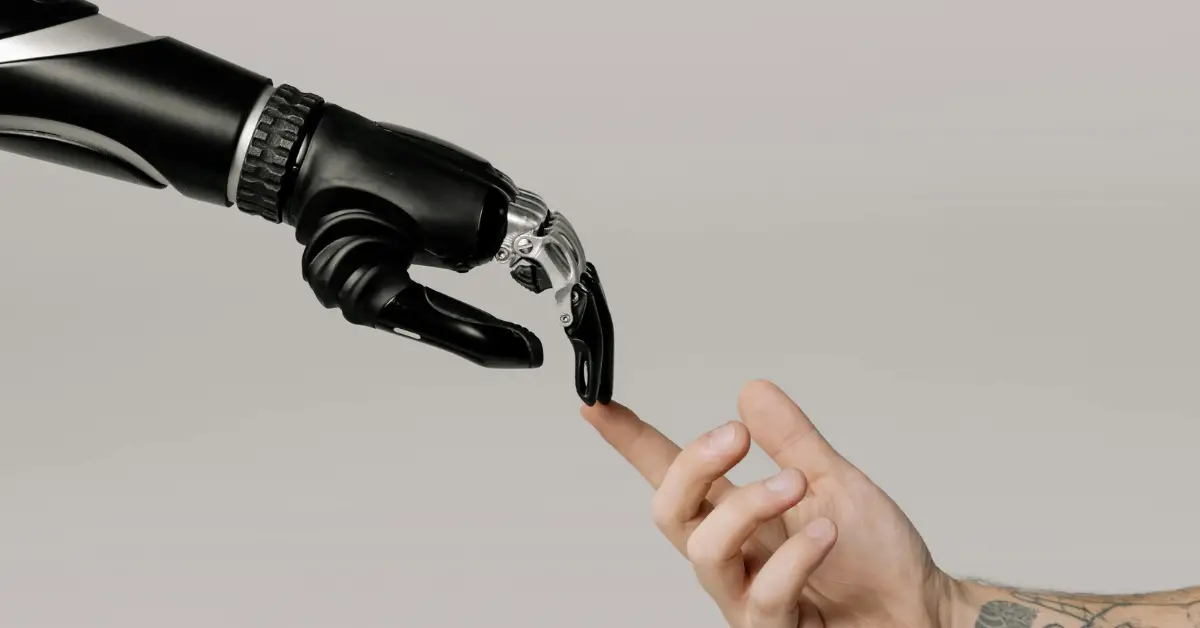In this too much of an uncertain time (with the evolving landscape of automation, artificial intelligence and robotics), countless industries are feeling the impact (manufacturing floors to healthcare facilities). Although these AI-driven systems are getting embedded into our daily operations, one domain that’s getting unnoticed but equally critical is cleaning.
As companies roll out autonomous cleaning robots, a pressing question arises: will robots replace human cleaners? The answer is nuanced but clear. Not entirely folks!. Instead, the future of cleaning is probably be shaped by collaboration between humans and machines, a concept known as “cobotics”.
Okay, So What Are These Silly Cobots?
Cobots, or collaborative robots, are designed to work alongside human workers, not in place of them. Traditional industrial robots work in isolated environments, but cobots are made to share space with people, assisting with tasks (rather than taking them over).
In the cleaning industry, cobots will likely be taking on repetitive, time-consuming, and ergonomically taxing duties such as like scrubbing floors or vacuuming vast open areas.
This way human cleaners can redirect their efforts toward tasks that require judgment, dexterity, and adaptability. Okay, so what can those tasks be?
1- Spot cleaning and stain removal is one
2- Another one can be Disinfecting high-touch areas (e.g., doorknobs, elevator buttons)
3- How about Restocking supplies?
4- Are we forgetting Detailed restroom sanitation?
5- Who is going to Respond to unexpected messes?
So, Cleaners Can’t Be Fully Replaced
While AI cleaning robots have made impressive strides, they still face fundamental limitations in mimicking human abilities. Here’s why humans remain indispensable:
1. Robots Cannot Managing Complex Environments
Many spaces like offices, hospitals, schools, and airports have frequently changing layouts. They might also involve unexpected obstacles. Humans are still far better at interpreting and adapting to new situations in real time.
2. We Need Attention to Detail
A human cleaner can notice and address subtle issues a robot might miss (like a scuff mark on a wall, or a coffee spill under a desk- These things are outside a robot’s programmed route.)
3. Do you know about Contextual Understanding?
Human cleaners often make decisions based on context: should a wet floor be blocked off? Is an item trash or someone’s personal belonging?
Can Robots make such calls? No, as it required nuanced reasoning.
4. I Want that Human Interaction
In environments like schools or hotels, cleaners also provide a degree of human presence and reassurance. They interact with staff, answer questions, or handle sensitive areas where privacy or discretion is needed.
But Still, There Are a Ton of Benefits of Human-Robot Collaboration
It is a win win situation for everyone (Employers, employees, and even end users of the cleaned spaces) when robots assist instead of replace.
Increased Efficiency: With the help of Cobots, cleaning large areas overnight or during low-traffic hours will become easy. This way, human cleaners can start their shifts focusing on high-importance areas.
Reduced Physical Strain: Let’s agree that repetitive tasks like mopping those long corridors or pushing heavy vacuums can take a toll on workers’ bodies. Cobots are going to help reduce injuries and fatigue.
Consistent Results: It cannot be ignored that robots provide standardized cleaning on tasks they are designed for. This means that there is no or very less possibility of areas getting accidentally skipped, which usually happens due to human oversight or time constraints.
How Will the Future Workforce Possibly Look Like?
Cleaners of today are likely to evolve into tech-enhanced professionals. Tomorrow’s cleaners will not only know how to sanitize those surfaces but also:
• They are going to monitor and manage robotic fleets
• They’ll interpret data from AI systems to optimize cleaning schedules
• High chances that they will perform light troubleshooting or maintenance on their robotic assistants
Training and upskilling will be critical as cobots become standard equipment in cleaning operations.

